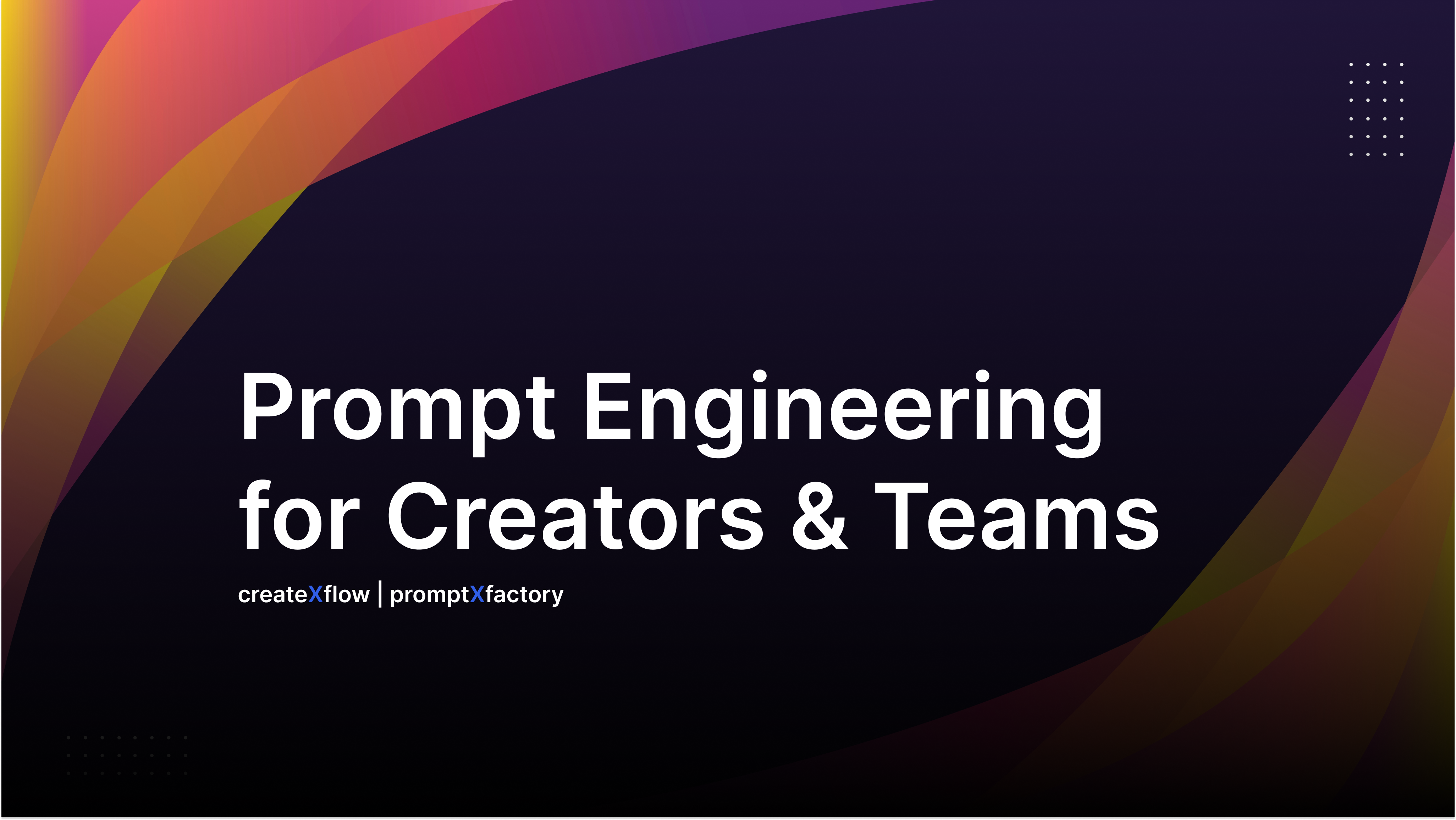Prompt Engineering Made Easy — A 2025 Guide for Creators & Teams
Artificial intelligence has reached a tipping point: the quality of your output now depends more on the prompt than on the model. Whether you’re generating blog posts with GPT‑4o, product photos with Midjourney, or marketing copy with Gemini, prompt engineering is the multiplier that turns “meh” into magic.
- Why prompt crafting is the #1 AI skill of 2025
- The basic rules every creator should know
- Advanced frameworks for power users
- Why promptXfactory is the must‑have visual tool this year
- A peek into the future of prompt engineering

1. Why Prompt Crafting Is a Must‑Have Skill in 2025
1.1 Model Performance Is Converging—Prompt Quality Isn’t
Large‑language models are entering the “iPhone vs Android” stage: features feel similar, differentiators lie in user expertise. A mid‑tier model fed an expert prompt often beats a premium model with a vague request. Prompt mastery is now the cheapest upgrade path.
1.2 ROI on Prompts > Model Upgrades
A $20/month subscription to GPT‑4o yields diminishing returns if your prompt is weak. Internal CreateXFlow tests show that rewriting a single prompt can:
- Boost factual accuracy by 43 % (measured on MMLU subset)
- Halve the number of regeneration clicks
- Cut token spend by 27 % via tighter context windows
1.3 Universal Applicability Across Roles
Prompt engineering isn’t just for marketers. Developers use it for code refactoring, legal teams for contract summaries, PMs for stand‑up digests. LinkedIn listings mentioning “prompt engineering” jumped 780 % YoY (Q2 2025). Even design sprints now start with a prompt brainstorming session.
1.4 New Compliance & Brand Requirements
Brands are under pressure to keep AI output on‑brand and legally safe. Well‑structured prompts embed style guides, banned topics, and regulatory checklists—reducing post‑editing and legal risk.
1.5 Future Automation Depends on Prompt APIs
SaaS leaders (Notion, Shopify, HubSpot) have announced Prompt API endpoints for third‑party apps. Tomorrow’s workflows won’t hard‑code instructions—they’ll reference version‑controlled prompt objects. Learning prompt discipline today future‑proofs your automation stack.
Bottom line: Prompt skill compounds—every refined instruction boosts all future interactions. Mastering this leverage now sets you up for the next wave of AI tools.
2. Basic Prompt Engineering Rules
- Role + Task + Context + Output Format “You are a senior copywriter. Create five playful ad headlines for a vegan snack brand. Output as JSON array.”
- Be Specific — numbers, tone, target length.
- Use Step‑by‑Step (“Chain of Thought”) — “Think step‑by‑step, then provide final answer.”
- Anchor Examples — few‑shot prime the model with desired style.
- Iterate & Refine — treat prompts as living documents.
Pro Tip: Add a negative prompt for image models (e.g., “no watermarks, no text”).
3. Advanced Prompt Creation Frameworks
3.1 P.A.R.A.D.E. Framework
| Letter | Meaning | Example |
|---|---|---|
| P | Persona | “You are a customer‑success guru.” |
| A | Action | “Draft a follow‑up email.” |
| R | Rules | “Use friendly tone, ≤ 120 words.” |
| A | Assets | “Include product link: {{url}}.” |
| D | Deliverable | “Return plain text, no header.” |
| E | Evaluation | “Provide a confidence score out of 10.” |
3.2 Prompt Chaining
Break complex tasks into sub‑prompts:
- Outline
- Expand each section
- Rewrite for tone
- Final QA prompt
3.3 Multimodal Prompts
Combine image + text: “Here is a chart (image). Summarise key insights in 3 bullets.”
4. Why promptXfactory Is a Must‑Have in 2025
Drag‑and‑Drop Prompt Building
No YAML, no remembering Midjourney’s --ar syntax. Sliders for style, tone, aspect ratio. Real‑time preview.
Multi‑Model Support
Build once, export to ChatGPT, Gemini, Claude, Midjourney, and DALL·E 3. Perfect for A/B testing.

🚀 Supercharge Your Prompts
promptXfactory
Stop wasting time on guesswork
Start building smarter prompts—faster
5. The Future of Prompt Engineering
- Natural Language UI Builders — prompt‑to‑app; no CSS needed.
- Prompt Markets — buy/sell high‑performing prompt packs.
- Prompt‑Aware Models — models that recall your prompt history for contextual continuity.
- Voice‑First Prompts — voice + gesture + image for AR/VR workflows.
- Regulated Prompts — industries like finance require audit logs.
Prediction: By 2027, major SaaS platforms will expose “prompt endpoints” the way they expose REST APIs today.
6. Key Takeaways
- Prompt engineering is the leverage skill of 2025.
- Master the basics—Role, Task, Context, Format.
- Use frameworks like P.A.R.A.D.E. and chaining for complex jobs.
- promptXfactory removes syntax friction and scales prompt libraries.
- The future will embed prompts into every UI and API.
Ready to level up?
